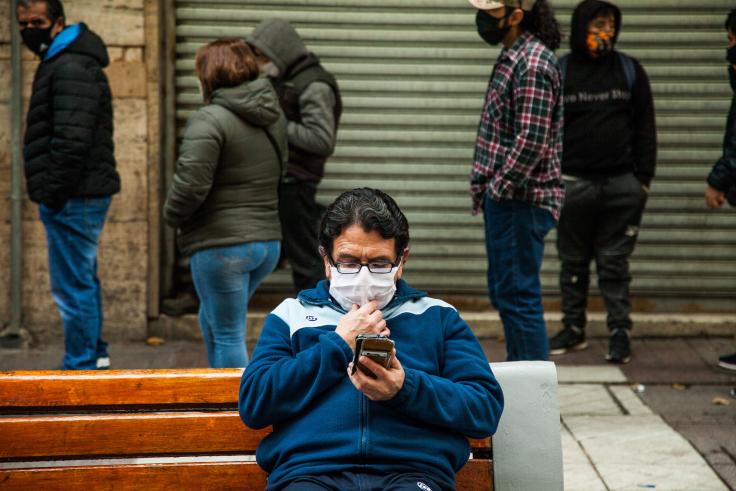Supporting Governments During Covid-19
J-PAL LAC is leveraging its long-standing partnerships with governments in the region to provide policy advisory support and to share evidence to fight the short- and long-term challenges posed by the pandemic.

Photo: Pablobellr | Shutterstock.com
The Covid-19 pandemic has led to unprecedented disruptions in the daily lives of millions of people in Latin America, from widespread school closures to massive unemployment and overwhelmed hospital systems. This has created unprecedented challenges in identifying and implementing impactful and cost-effective solutions for policymakers and practitioners grappling with development questions, old and new.
High-quality data and evidence is needed to inform short- and long-term decisions that have arisen in the wake of the pandemic. Through new and existing partnerships, J-PAL LAC has been able to provide policymakers with actionable evidence to inform the design and implementation of new solutions to this scenario.
Supporting our institutional partners
Ministry of Finance of Chile
In Chile, J-PAL affiliated researchers Francisco Gallego and Claudia Martinez were part of a team of economists and policy experts from the Pontificia Universidad Católica de Chile (UC Chile), who, along with staff from J-PAL LAC, supported the government in designing a cash transfer program for workers who were not formally employed or previously registered in the government’s database of beneficiaries. Based on findings from 24 randomized evaluations looking at the effectiveness of different types of transfers and delivery schemes, the team drafted a proposal that helped inform the design of Chile’s Ingreso Familiar de Emergencia (IFE) program. Since implementation began in May 2020, the US$830 million program reached over 3 million households in the first five months.
Additionally, Francisco Gallego, Claudia Martinez, Jeanne Lafortune, José Tessada, and other professors from UC Chile, with support from J-PAL LAC, advised Chile’s Ministry of Finance on measures and policies aimed at employment recovery during and after the Covid-19 crisis in the country. The group of academics shared a document with evidence synthesis and clear proposals to promote employment opportunities in the wake of the pandemic. The proposal, focusing on topics ranging from skills training and vocational programs, to public employment emergency programs, wage subsidies, and programs to promote micro and small businesses will inform a new set of policies in the country.
Ministry of Education of Chile
In June of 2020, the Minister of Education invited Edoardo Trimarchi, Senior Policy Manager at J-PAL LAC, to participate in a new working group. The group, composed of practitioners and experts, is advising the Ministry on evidence-based interventions to prevent and reduce the effects of school dropout in the wake of the Covid-19 crisis.
As part of J-PAL LAC’s participation in the group, the policy team and J-PAL LAC’s Co-Scientific Director Francisco Gallego (UC Chile) partnered with the Ministry to design, implement, and rigorously evaluate a quick SMS information campaign targeting parents of students (grades 1-12) who dropped out of school and did not enroll during the 2020 school year.
The campaign objective was to inform parents about late enrollment opportunities for their children in primary and secondary schools and provide information about the process. The SMS contained a variety of messages informed by evidence on nudge theory and included a link to a new website page containing detailed information on how to finalize late enrollment for the 2020 school year.
Based on promising results of the evaluation, Francisco and J-PAL LAC worked with the Ministry of Education to further test and expand upon the original program design for the 2021 school year.
J-PAL LAC is also working with Francisco, Christopher Neilson (Princeton), and the Ministry of Education to implement a pilot replication of a successful information campaign on the returns to education to reduce dropout rates. The program has been previously evaluated at scale in the Dominican Republic and in Peru, and scaled by the governments of the two countries.
The team is currently providing technical assistance to the Ministry of Education to set up technology-based innovations aimed at engaging students’ parents and improve the implementation system of the pilot. These activities will lay the groundworks for a robust monitoring and implementation system that will be leveraged for the program scale-up.